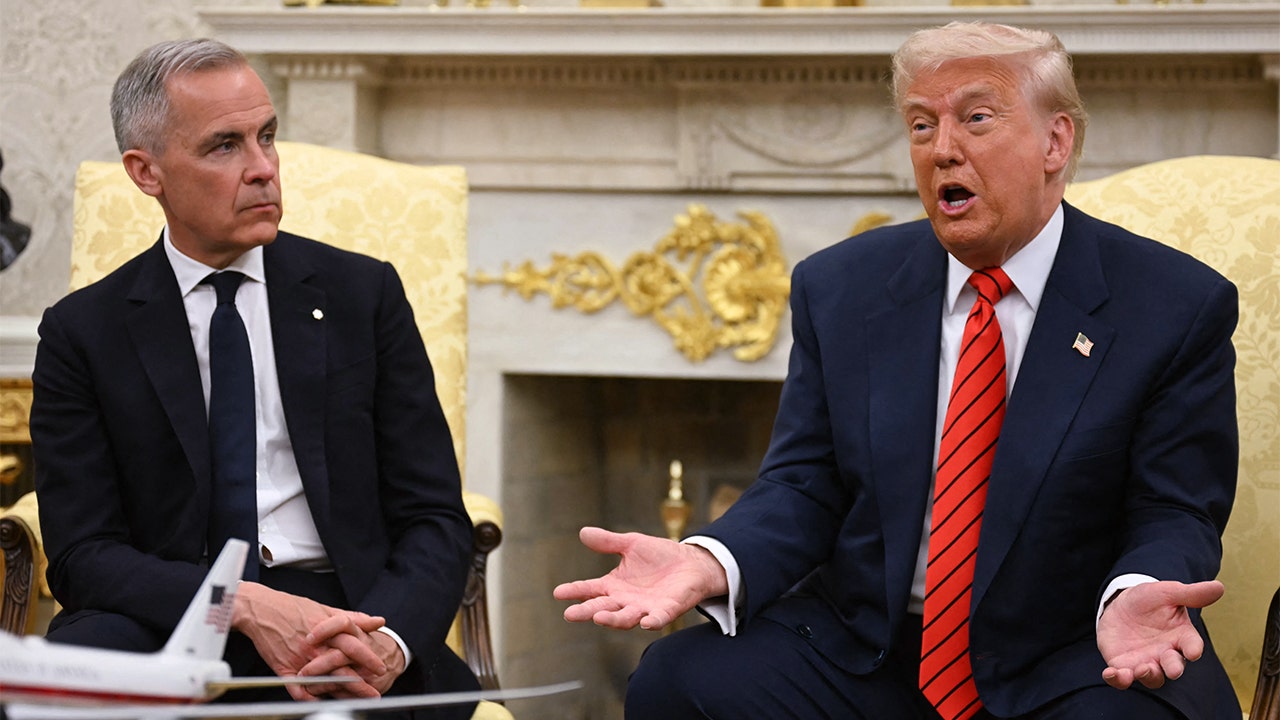National Public Radio and three Colorado public radio stations filed a federal lawsuit Tuesday challenging President Donald Trump’s executive order directing the termination of federal funding to NPR and PBS.
The lawsuit comes after President Trump signed an executive order earlier this month ordering the Corporation for Public Broadcasting and other federal entities to “cease Federal funding for NPR” and similar public media outlets.
NPR has a right to free speech.
It doesn’t have a right to our tax dollars. pic.twitter.com/yTPfVwif72
— Congressman Brandon Gill (@RepBrandonGill) May 27, 2025
Trump’s Sovereign Wealth Fund: What Could It Mean For Your Money?
The order has drawn swift backlash from NPR and its affiliates, prompting legal action spearheaded by NPR CEO Katherine Maher.
NPR is suing the Trump Administration.
This is NPR CEO Katherine Maher.
Why are our tax dollars paying her salary and funding a propaganda arm of the Democrat Party? pic.twitter.com/rIrYfsfUWV
— Christian Collins (@CollinsforTX) May 27, 2025
This Could Be the Most Important Video Gun Owners Watch All Year
In a statement released Tuesday, Maher said, “The Executive Order is a clear violation of the Constitution and the First Amendment’s protections for freedom of speech and association, and freedom of the press. It is an affront to the rights of NPR and NPR’s 246 Member stations, which are locally owned, nonprofit, noncommercial media organizations serving all 50 states and territories. Today, we challenge its constitutionality in the nation’s independent courts.”
NPR is joined in the suit by Colorado Public Radio, Aspen Public Radio, and KSUT. The legal complaint names President Trump, White House budget director Russel Vought, Treasury Secretary Scott Bessent, and National Endowment for the Arts Chair Maria Rosario Jackson as defendants.
According to the lawsuit, the executive order is “unlawful in multiple ways” and poses a threat to the public broadcasting system, which serves tens of millions of Americans with news coverage, educational programming, and emergency alerts.
“Public media was established to inform the American public and uphold American democratic values,” Maher said in the same statement.
“The President’s Executive Order is directly counter to Congress’s long standing intent, as expressed in the Public Broadcasting Act, to foster vibrant institutions that achieve that mission, serving all Americans independent of political influence.”
Maher argued that the Public Broadcasting Act of 1967 was designed to promote access to high-quality, independent, and noncommercial programming across the country.
She noted that Congress has long supported public broadcasting in a bipartisan manner, recognizing it as a public good and civic necessity.
“The Act, which provides for the creation of programming of ‘quality, diversity, creativity, excellence, and innovation,’ is a testament to Congress’s foresight,” Maher stated.
“It created the infrastructure for a public radio system that reaches nearly 99% of the U.S. population over the airwaves.”
Maher also emphasized that the executive order threatens local newsrooms, children’s programming, arts and culture broadcasts, and storytelling efforts that serve communities across the nation.
According to Maher, President Trump’s order is rooted in personal opposition to NPR and PBS content, which he has previously described as “left-wing propaganda.”
She referenced language in the order criticizing the networks’ coverage as not “fair, accurate, or unbiased.”
“This is retaliatory, viewpoint-based discrimination in violation of the First Amendment,” Maher said.
“The Supreme Court has ruled numerous times over the past 80 years that the government does not have the right to determine what counts as ‘biased.’”
Maher insisted that NPR would not yield to pressure to change its editorial direction based on political preferences.
“NPR will never agree to this infringement of our constitutional rights, or the constitutional rights of our Member stations, and NPR will not compromise our commitment to an independent free press and journalistic integrity,” she said.
NPR is asking the federal court to declare Trump’s executive order unlawful and unconstitutional.
The suit also seeks coverage of legal costs, attorney’s fees, and “any other relief that the Court deems just and proper.”
Connect with Vetted Off-Duty Cops to Instantly Fulfill Your Security Needs
Read the full article here


![NPR Files Lawsuit Against Trump’s White House, Claims Defunding Them is Unconstitutional [WATCH] NPR Files Lawsuit Against Trump’s White House, Claims Defunding Them is Unconstitutional [WATCH]](https://www.lifezette.com/wp-content/uploads/2025/05/2025.05.27-04.46-lifezette-6835ec5b73ab9.jpg)




![Penis Costume Wearing Grandma Arrested at ‘No Kings’ Protest in Alabama [WATCH] Penis Costume Wearing Grandma Arrested at ‘No Kings’ Protest in Alabama [WATCH]](https://www.rvmnews.com/wp-content/uploads/2025/11/2025.11.23-06.37-rvmnews-6923546fd35a9.jpg)



![Michelle Obama Gets Cooked Online After Blowing Up Her Own ‘Glam Team’ Narrative [WATCH] Michelle Obama Gets Cooked Online After Blowing Up Her Own ‘Glam Team’ Narrative [WATCH]](https://www.lifezette.com/wp-content/uploads/2025/11/2025.11.16-01.48-lifezette-6919d617490b1.jpg)
